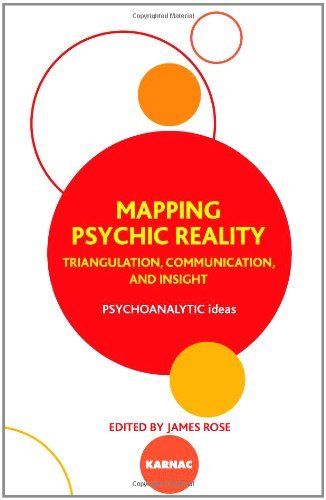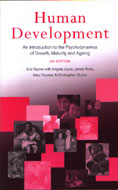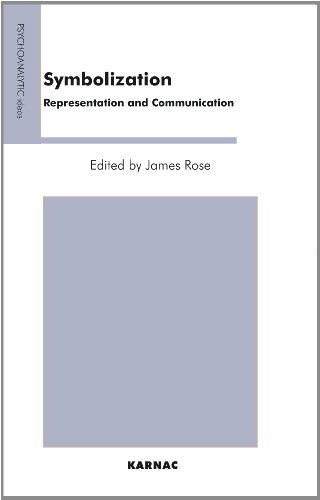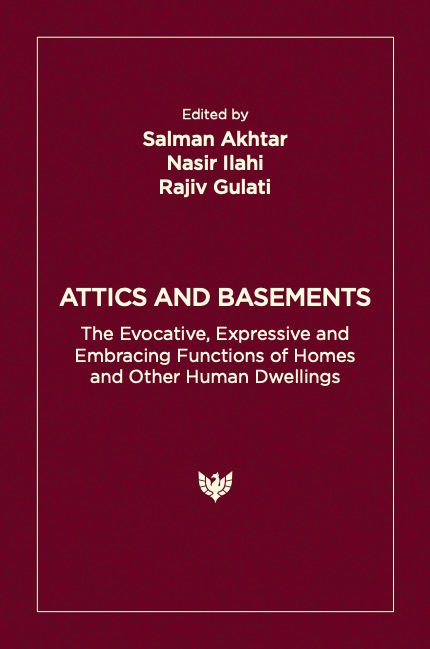Mapping Psychic Reality: Triangulation, Communication, and Insight
Part of The Psychoanalytic Ideas series - more in this series

Book Details
- Publisher : Routledge
- Published : 2011
- Cover : Paperback
- Pages : 304
- Category :
Psychoanalysis - Catalogue No : 29455
- ISBN 13 : 9781855758148
- ISBN 10 : 1855758148
Also by James Rose
You and Your Mid-Adolescent
Price £18.99
Symbolization: Representation and Communication
Price £24.99
There are currently no reviews
Be the first to review
This book is about how we can deepen our understanding of subjectivity through the use of the concept of triangulation. Fundamentally, this book seeks to address the question of how we can be objective about subjectivity. If psychology, as a scientific discipline, is concerned with the study of human experience, which is essentially subjective; then we are faced with the problem of how apply the scientific method, as it is commonly understood. If experience is essentially unique to the experiencer, then there seems to be a basic incompatibility with the scientific method. As currently practised, this method searches for psychic phenomena, which can be validly measured e.g. intelligence; showing a range of individual differences. But this does not enable us to examine individual experience. An individual's experience seems to become impenetrable because generalisation across different individuals' experience entails the loss of individuality in the generalisation. Thus, in using the scientific method as it usually understood, we lose the very matter we are trying to study. This leaves us with the question of how we are going to advance our inquiry.
Reviews and Endorsements
'This is an important book, which tackles, both with theoretical and clinical papers, the complex question about how we can be objective about our subjective experience. The concepts of "triangulation" and "the third" provide ways of trying to organize answers to this question. Indeed, the book itself provides a "third" area; a space where one can seriously consider and observe the nature of the psychoanalytic experience from a point of view that takes account of both the subjective experience of patient and analyst while also trying to think objectively about their experience, in ways that are consistent with psychoanalytic thinking. To do this, various authors have drawn on psychology, philosophy, history, natural science, and mathematics, as well as turning specific attention to the psychoanalytic relationship. It is an impressive collection, which I would very much recommend.'
- Dr Roger Kennedy, Training Analyst and Past President British Psychoanalytical Society
Contents
ACKNOWLEDGEMENTS; ABOUT THE EDITOR; INTRODUCTION
PART I: TRIANGULATION, COMMUNICATION, AND INSIGHT
Introduction
CHAPTER ONE: Experimental psychology and psychoanalysis: what we can learn from a century of misunderstanding - Paul Whittle
CHAPTER TWO: The third: a brief historical analysis of an idea - Charles M. T. Hanly
CHAPTER THREE: Triangulation, one's own mind, and objectivity - Marcia Cavell
CHAPTER FOUR: Subjectivity, objectivity, and triangular space - Ronald Britton
PART II: TRIANGULATION IN THE TEMPORAL DIMENSION
Introduction
CHAPTER FIVE: Consultation or assessment: engagement and treatment decisions in psychotherapy with young people in a community-based setting - James S. Rose
CHAPTER SIX: Is twice a week enough? Thinking about the number of sessions per week as a determinant of the intensity of psychoanalytic psychotherapy - James S. Rose
PART III: TRIANGULATION IN THE PSYCHOANALYTIC SETTING
Introduction
CHAPTER SEVEN: Distortions of time in the transference: some clinical and theoretical implications - James S. Rose
CHAPTER EIGHT: Symbols and their function in managing the anxiety of change: an intersubjective approach - James S. Rose
CHAPTER NINE: The presence of absence in the transference: some clinical, countertransference, and metapsychological implications - James S. Rose
CHAPTER TEN: Couples, doubles, and absence: some thoughts on the psychoanalytical process considered as a learning system - James S. Rose
PART IV: SOME METAPSYCHOLOGICAL SPECULATIONS AND SOME TECHNICAL
CONCLUSIONS
Reflections and summary
INDEX
About the Editor(s)
James Rose, PhD, is a Fellow of the Institute of Psychoanalysis and a member of the British Psychoanalytical Society. He has a private psychoanalytic practice in London. Since 1987 he has worked as a psychoanalytic psychotherapist at the Brandon Centre for Counselling and Psychotherapy for Young People, an inner city charity specializing in the psychotherapeutic treatment of adolescents and young adults, situated in Kentish Town, London.
Customer Reviews
Our customers have not yet reviewed this title. Be the first add your own review for this title.
You may also like
Attics and Basements: The Evocative, Expressive and Embracing Functions of...
Salman Akhtar
Price £25.19
save £2.80










